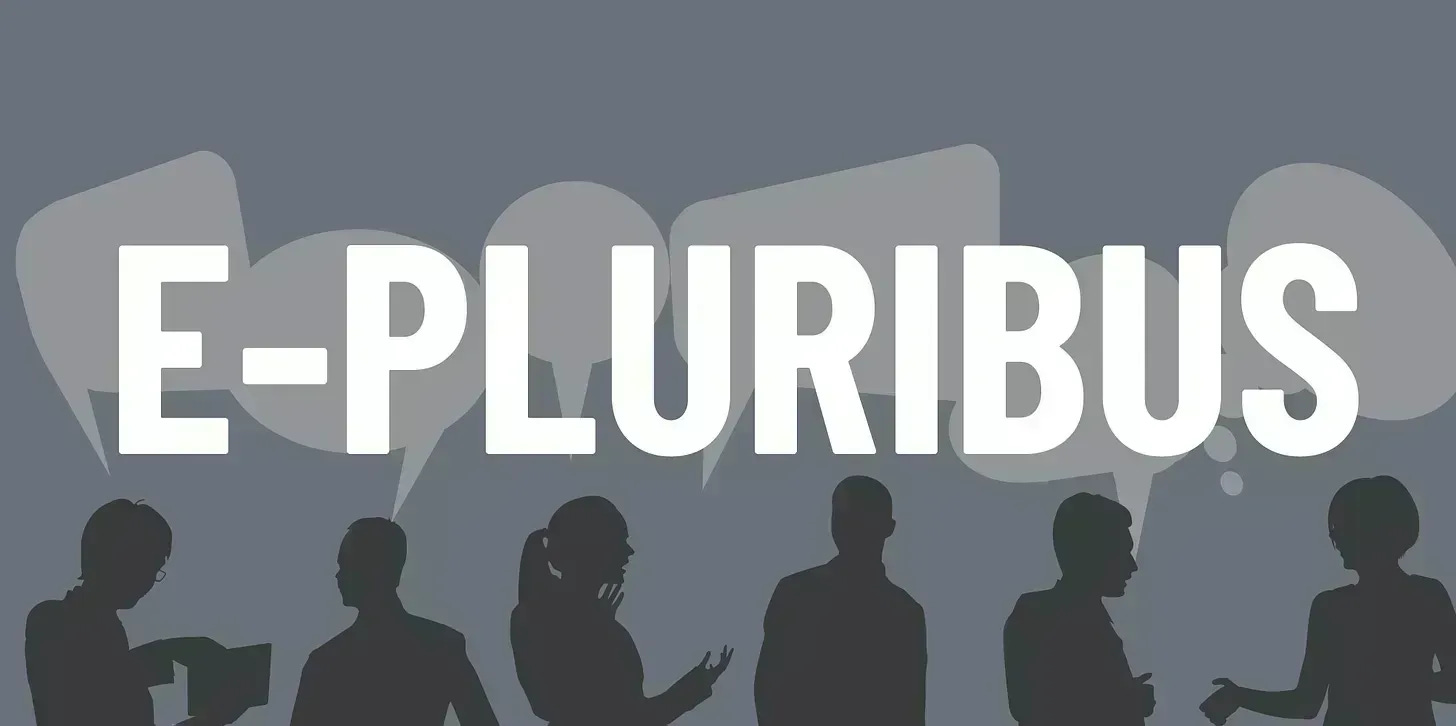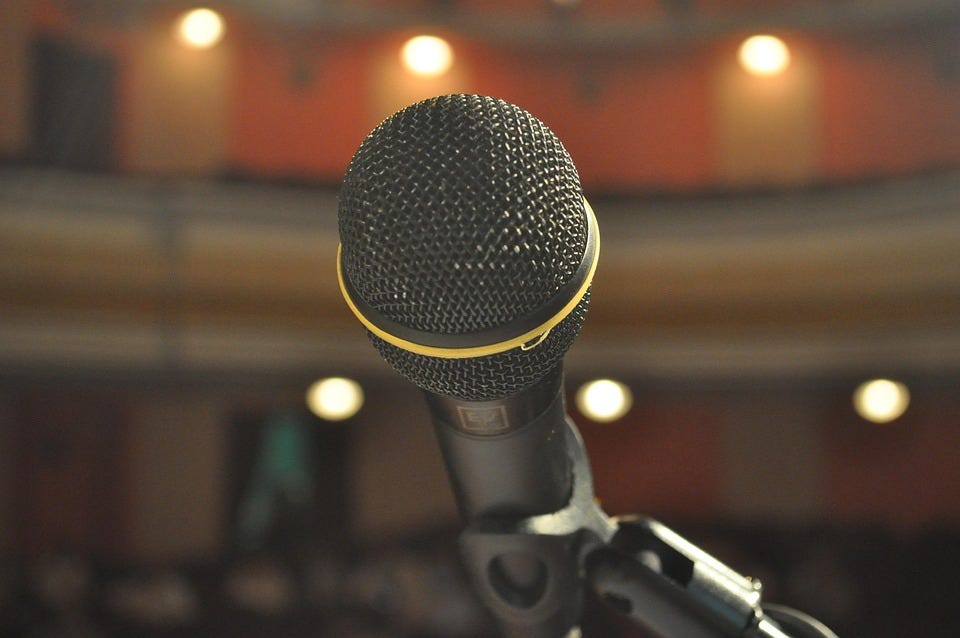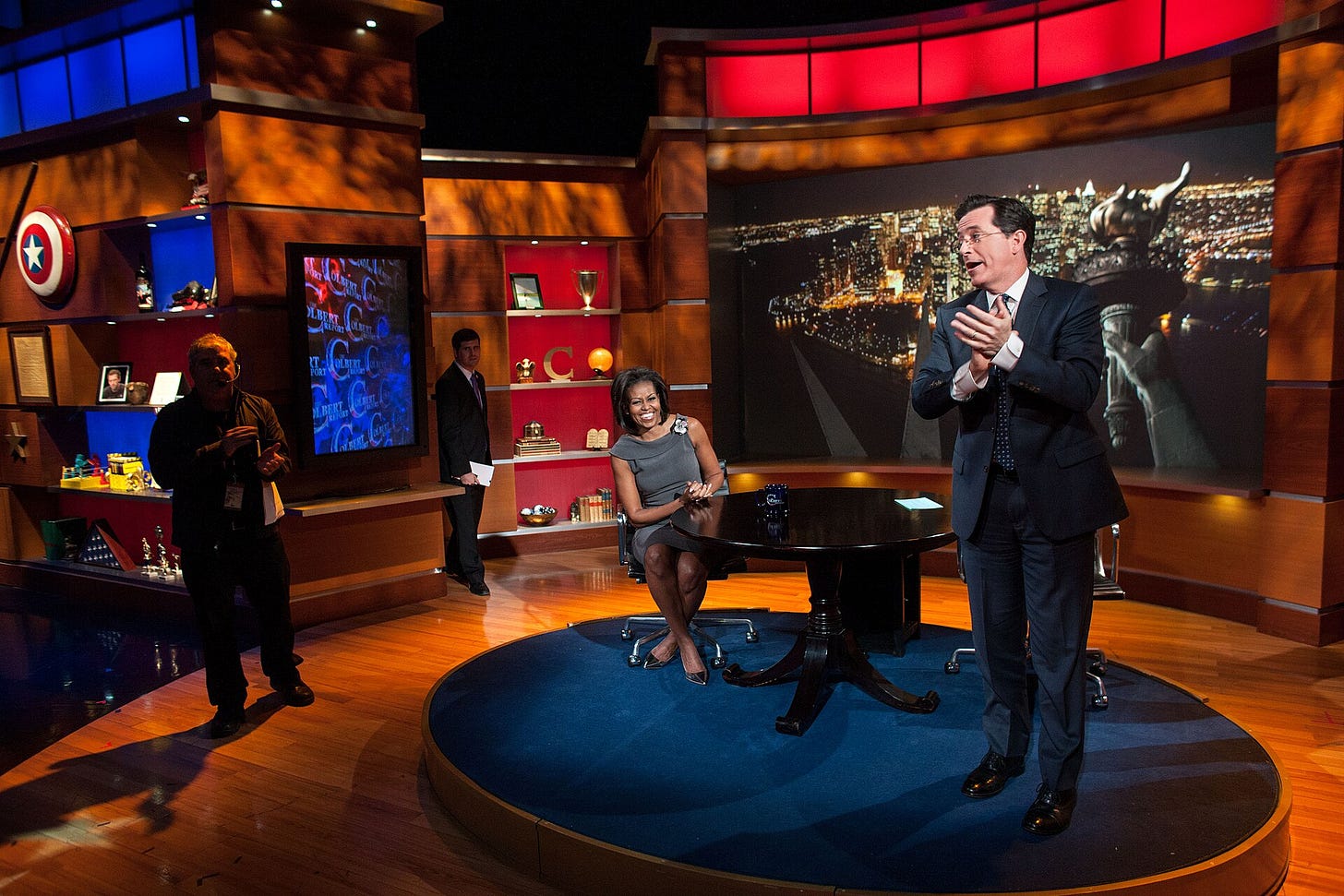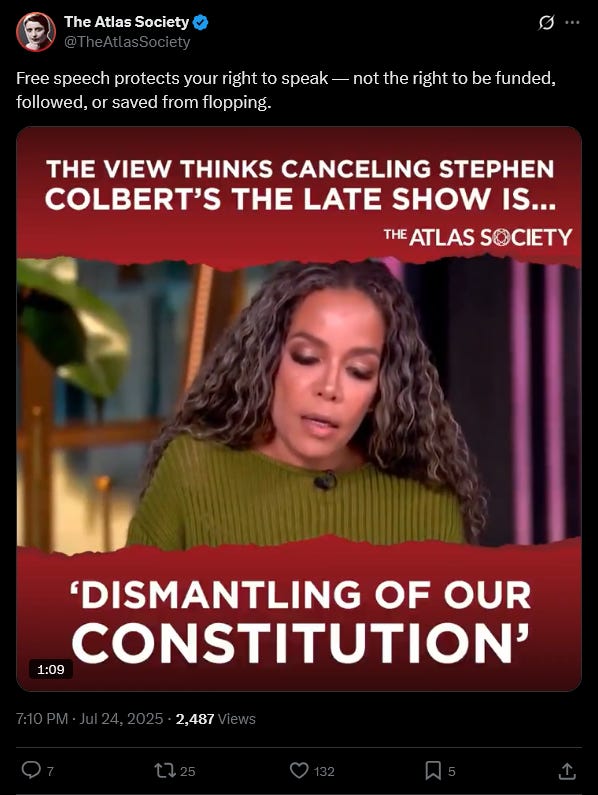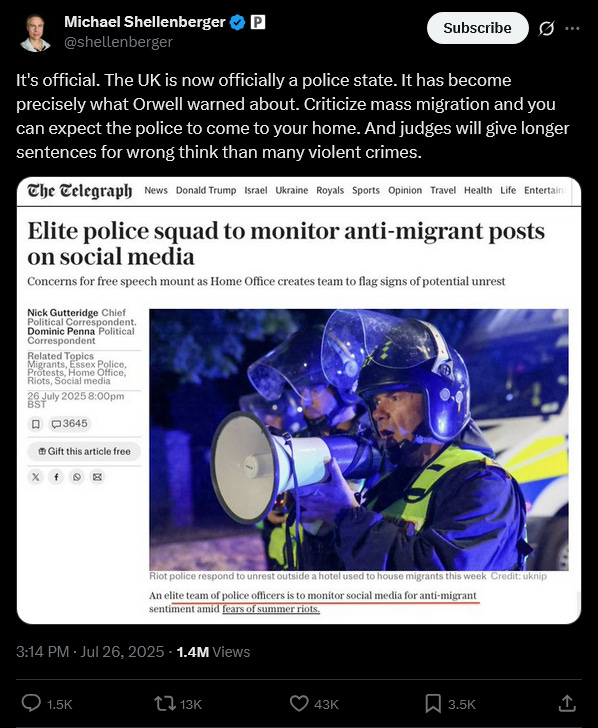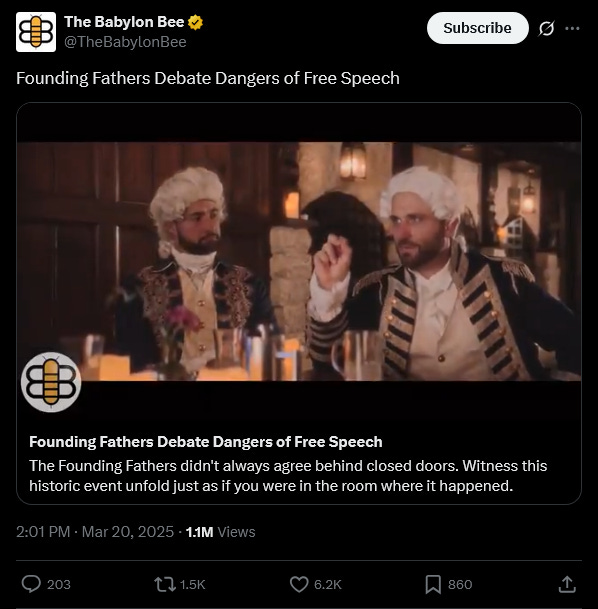E-Pluribus |July 30, 2025
ACLU defends NRA's 1A rights. Free speech protections improving on college campuses. Stephen Colbert censored?
A round-up of the latest and best insight on the rise of illiberalism in the public discourse:
Billy Binion: The ACLU Says a New York Official Violated the NRA's First Amendment Rights. They Still Can't Sue Her.
The American Civil Liberties Union (ACLU) and the National Rifle Association agree on very little. But that didn’t stop the ACLU from defending the NRA’s free speech rights when they were assaulted by an ideological insurance bureaucrat in New York. Reason has the story:
The legal odyssey stretches back to 2017, when the New York Department of Financial Services (DFS) found that Carry Guard—a self-defense insurance program endorsed by the NRA and underwritten by insurance companies—had violated state insurance law by offering coverage for criminally negligent acts with a firearm that killed or injured another person. Those insurance companies ultimately paid civil penalties.
The 2018 shooting at Marjory Stoneman Douglas High School in Parkland, Florida, which occurred a few months after that probe, subsequently prompted Maria Vullo—then a superintendent at DFS—to weaponize her position to cripple the gun organization's advocacy and hamstring its access to insurance companies and financial institutions, the NRA alleges.
…
When the gun advocacy group first sued, alleging Vullo had violated its First Amendment rights, the U.S. Court of Appeals for the 2nd Circuit rejected that assertion. Vullo had not infringed on the NRA's free speech protections, the court said.
The group's appeal eventually made it to the Supreme Court—which unanimously ruled in May 2024 that the NRA had, in fact, stated a viable First Amendment claim. "Government officials cannot attempt to coerce private parties in order to punish or suppress views that the government disfavors," wrote Justice Sonia Sotomayor. The NRA, which was represented by the ACLU, "plausibly alleges that respondent Maria Vullo did just that." The ruling sent the case back to the lower court.
FIRE: Spotlight on Speech Codes 2025
How well do American universities protect free speech? Not very, according to the Foundation for Individual Rights and Expression (FIRE). While US schools are improving, just 73 (14.9%) of the 490 colleges included in FIRE’s analysis earned an overall “green light” rating for maintaining policies that do not seriously imperil free expression:
At a time when more than two in five students (42%) report that it is only “somewhat” clear that their administration protects free speech on campus, while roughly a quarter (24%) report that it is “not at all” or “not very” clear that it does so, it is perhaps more important than ever for university leaders to ensure their policies comport with First Amendment standards. However, FIRE’s annual review of our Spotlight database reveals most schools continue to maintain policies that infringe on free speech rights.
Of the 490 schools included in FIRE’s Spotlight database, 72 (14.7%) earn an overall “red light” rating for maintaining policies that clearly and substantially restrict free speech. Three hundred and thirty-seven (68.8%) earn an overall “yellow light” rating for maintaining policies that impose vague regulations on expression. And 73 (14.9%) earn an overall “green light” rating for maintaining policies that do not seriously imperil free expression. In addition, eight schools (1.6%) earn a “Warning” rating because they clearly and consistently state that they hold a certain set of values above a commitment to freedom of speech.
This marks a substantial improvement from the most recent Spotlight report and the reversal of a concerning trend. The number of green light schools increased by 10 schools, from 63 to 73, a 2% overall increase. Additionally, the number of red light schools decreased substantially, from 98 to 72, reducing the percentage of red light schools from 20% to just 14.7%.
Perhaps most notably, this 19th edition of the Spotlight on Speech Codes report marks the first time that the number of green light schools outnumbers the number of red light schools.
Adam Mill: When the Bill for Bad Comedy Comes Due
After Stephen Colbert lost his coveted slot as host of CBS’s Late Night show, many were quick to claim he was cancelled by a president who can’t tolerate biting criticism. Standup comedian Adam Mill says Colbert’s ousting wasn’t censorship, but a vote of no confidence from Americans who are tired of politicized jokes:
Talk shows get canceled all the time. Long-running multi-decade legacy shows are the exception, not the rule. People get bored of the same comedy formula after a while. That’s particularly true when the formula merely generates clapping instead of laughter.
Yet the … reaction to Colbert’s cancellation has been revealing. None of them have dared to defend Colbert’s competence as a comedian. The complaints center instead around the alleged “censorship” of his viewpoint …
At his apex during the Colbert Report years, Colbert could occasionally influence conversations around the watercooler and dinner table. That hasn’t been true for more than a decade. Some allege that Trump uses his influence to make it undesirable to platform rabid anti-Trump partisans. Maybe. But if Colbert were funny, he would still have a job.
…
The public has come to regard all the ad hominem attacks against Trump as politically motivated nonsense meant to kneecap popular opinion and support elitists like Colbert. After watching the government try to … meddle in domestic politics through censorship and intimidation, it’s no longer possible to pretend otherwise.
Around X
The Atlas Society adds an astute observation: the First Amendment doesn’t secure anyone’s right to an audience, just the freedom to speak our minds.
The UK continues its descent into madness—with the state now officially monitoring social media for “wrong think.”
Have you ever wondered what America’s founders would have thought of safe spaces, hate speech and similar restrictions on individual liberty? The Babylon Bee uses that premise to teach some timeless lessons about the value of our First Amendment (click for video).



